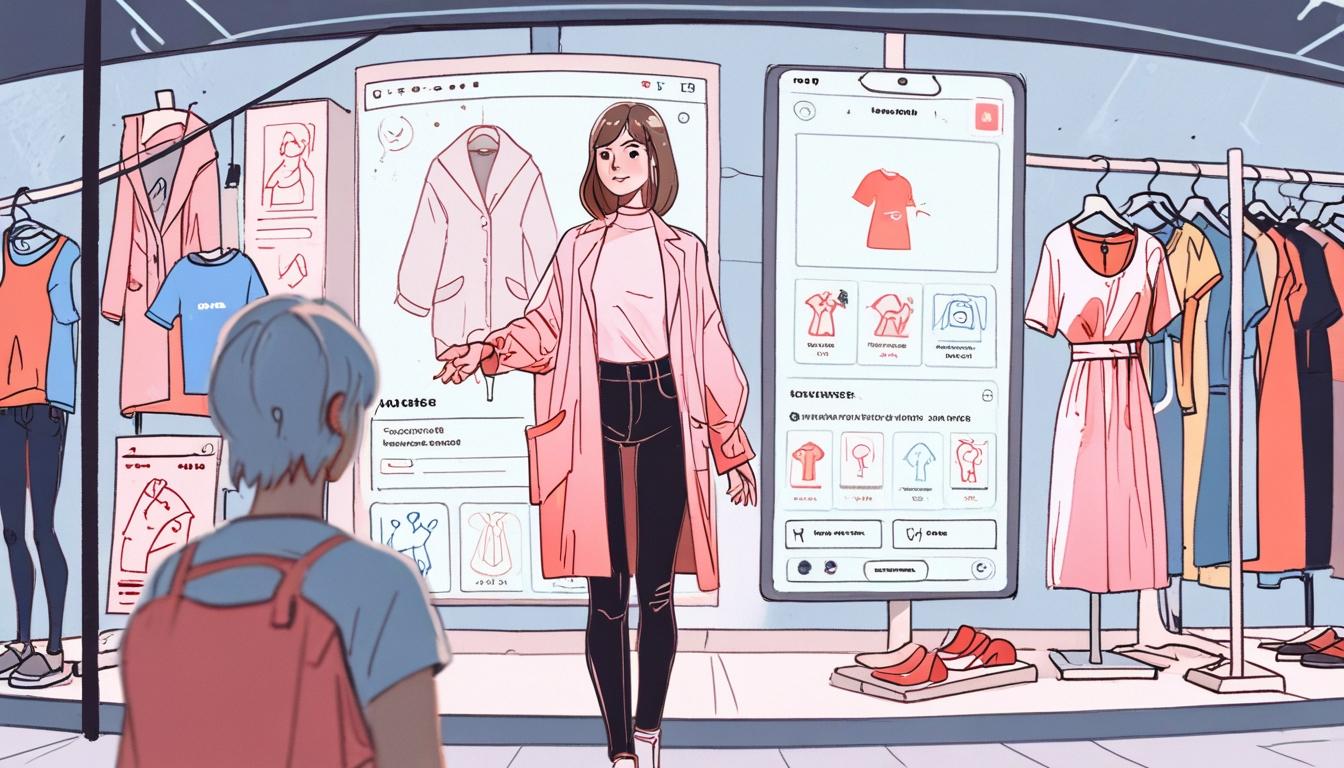The fashion retail industry is witnessing a notable transformation as virtual fashion assistants, powered by artificial intelligence (AI), begin to redefine how consumers engage with style and shopping. These digital stylists are emerging as new figures in the online marketplace, offering personalised fashion advice, up-to-date trend information, and a streamlined shopping experience available around the clock.
A key strength of virtual fashion assistants lies in their capacity to deliver hyper-personalised recommendations. Unlike human stylists who face limitations in time and availability, AI-driven systems can rapidly process extensive data sets, including users’ past purchases, browsing habits, saved preferences, and responses to style quizzes. By integrating this information with factors such as body shape, current fashion trends, and product availability, platforms like Acloset can tailor suggestions precisely to an individual’s unique tastes and requirements. This capability not only enhances the customer experience but also aims to transform online shopping from a transactional activity into a bespoke, engaging journey. Leading fashion brands have recognised the potential of these personalised recommendations to build stronger customer loyalty.
Beyond product suggestions, virtual assistants strive to bridge the gap between the online and offline shopping experience. Technologies such as augmented reality (AR) and advanced body scanning enable virtual try-ons, helping customers visualise how clothing items might fit before making a purchase. This innovation seeks to reduce uncertainty and decrease return rates, a common challenge in e-commerce. Additionally, AI-powered chatbots provide 24/7 customer support, swiftly addressing inquiries related to sizing, materials, shipping, and returns to enhance user convenience. This push towards sophisticated, personalised digital engagements aligns with broader AI trends seen in other domains, such as conversational AI companions. For instance, platforms like HeraHaven AI allow users to create personalised AI partners, demonstrating AI’s growing capability for nuanced and individualised interaction—an attribute now being utilised in fashion technology to strengthen consumer connections.
However, the widespread application of virtual fashion assistants is accompanied by challenges. Data privacy stands out as a significant concern, given these systems’ reliance on extensive personal information to function effectively. Brands must implement strong security measures and maintain transparency in data usage to address these concerns. Furthermore, while AI excels at analysing data and recognising patterns, its ability to comprehend the subtleties of personal style, cultural influences, and the creative essence that defines fashion is still developing. Poorly executed AI recommendations can frustrate users, potentially harming customer satisfaction. The question also remains whether algorithms can replicate the empathy, intuition, and collaborative creativity that human stylists provide. Moreover, the substantial investment required to develop and maintain advanced AI systems poses financial challenges, particularly for smaller fashion brands.
Looking ahead, the fashion styling landscape is expected to evolve into a hybrid model that combines human insight with AI capabilities. Virtual assistants are positioned to democratise personalised styling, making expert advice more accessible and efficient. By managing data analysis, trend forecasts, and initial styling recommendations, AI tools can allow human stylists to concentrate on more creative and interpersonal aspects of fashion consultancy. Although these digital assistants may not fully replace human professionals, their integration into the shopping experience is poised to significantly alter how people discover, select, and connect with fashion.
As reported by 303 Magazine, the conversation surrounding artificial intelligence in fashion is shifting from whether AI will influence the industry to understanding the extent of its impact in reshaping fashion retail’s future.
Source: Noah Wire Services
